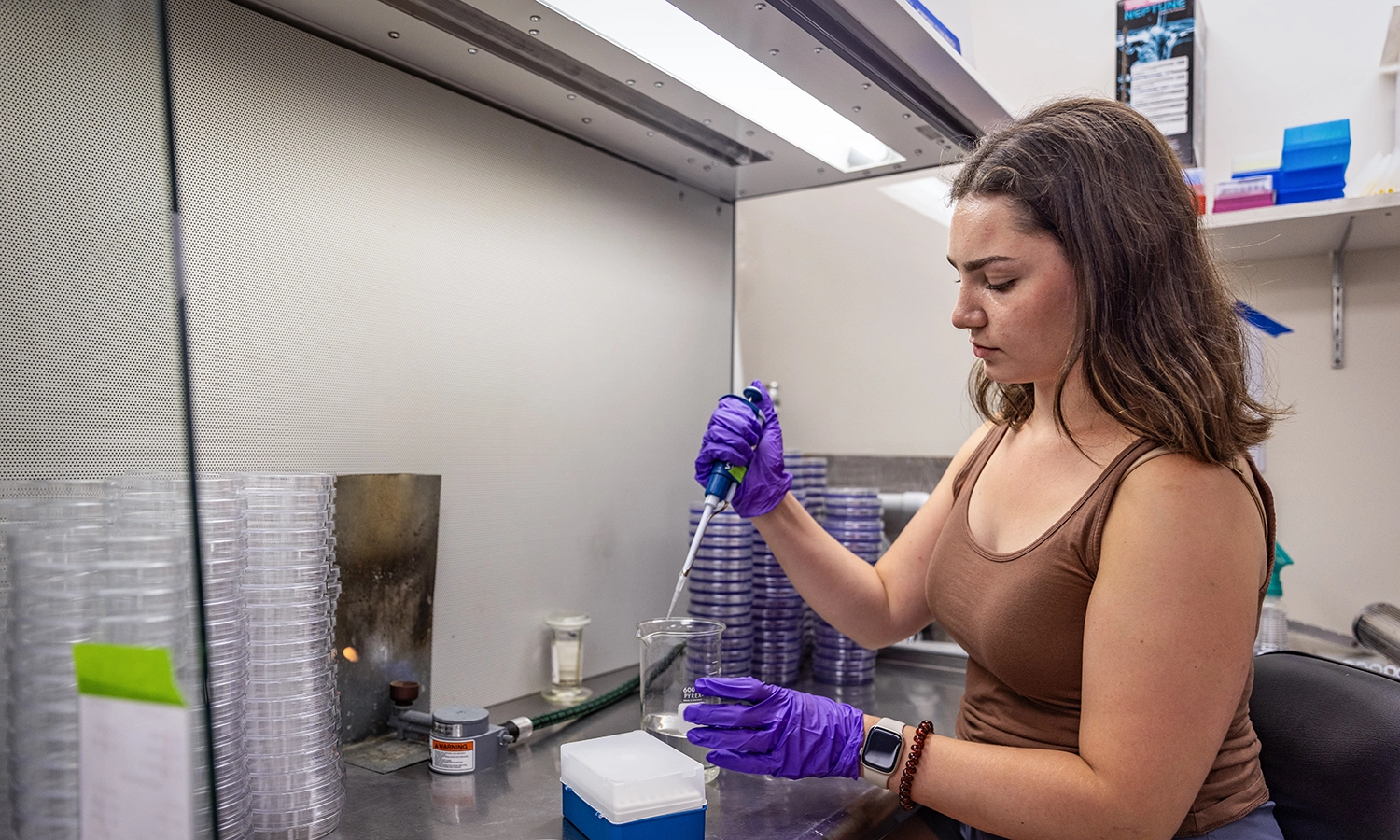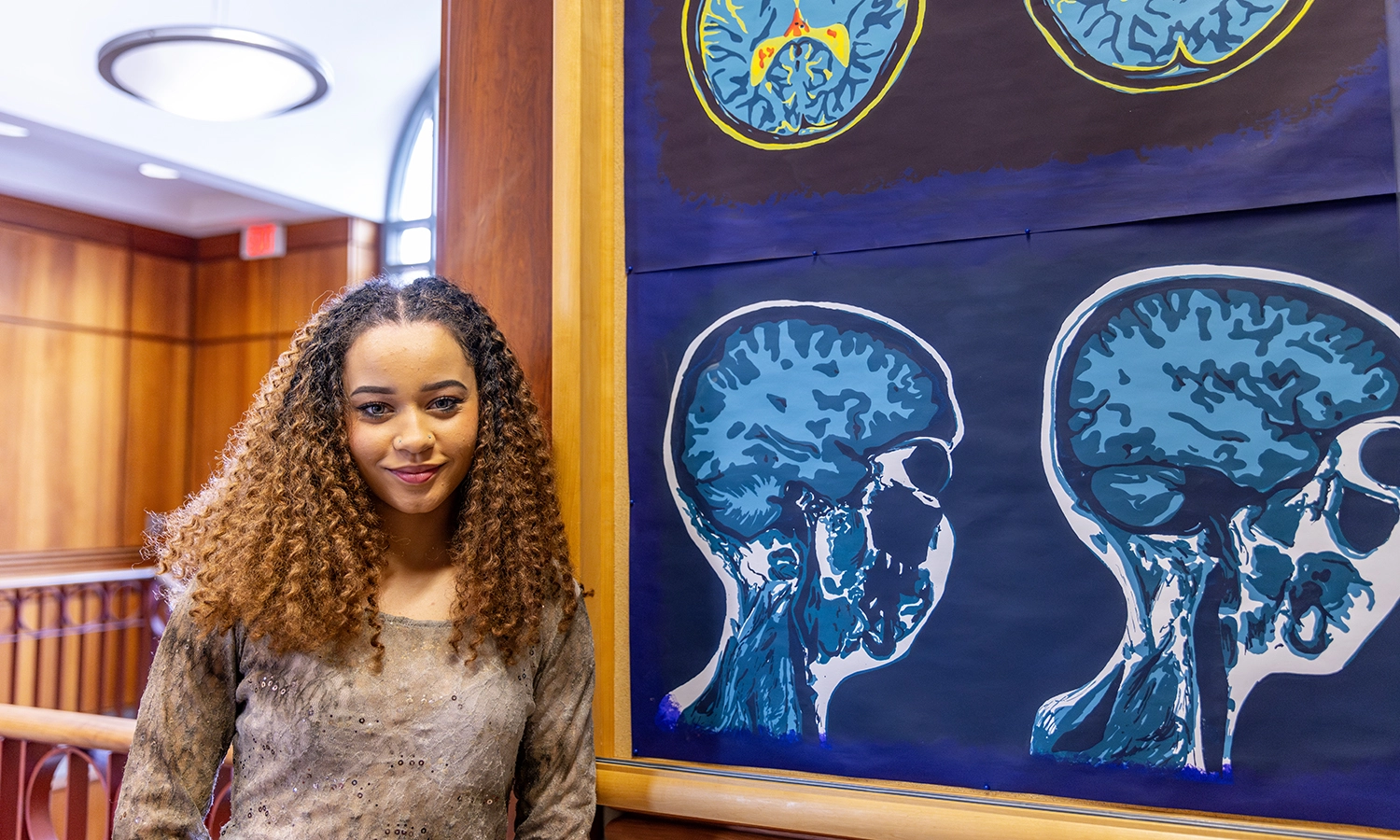
HWS News
30 November 2023 • Research • STEM UV Light Kills Fire Blight, Scourge of the Apple Blossom
A new study coauthored by Alexandra Davidson ’24 reveals how ultraviolet light suppresses the bacteria that causes fire blight, which can decimate apple and pear harvests.
Drive a few miles from Hobart and William Smith’s campus and you’re bound to come across an apple orchard. One of the Finger Lakes Region’s key crops, apples are under threat from antibiotic-resistant Erwinia amylovora, the bacteria that causes fire blight, but new research suggests that ultraviolet light can fight the disease as well as commercial antibiotics and biopesticides.
Through her summer research at Cornell AgriTech in Geneva, Alexandra Davidson ’24 joined scientists in studying fire blight, leading to a paper recently published in the journal Phytopathology.
The authors note that UV doses applied to blooming trees at night “resulted in an incidence of blossom blight and shoot blight equivalent to antibiotic and biopesticide commercial standards.” The UV treatment may be especially effective in “managing bacterial populations with antibiotic resistance.”
Davidson, a biochemistry major, began her research at Cornell AgriTech in 2022 as a summer lab technician. In the summer of 2023, she returned to continue working in the lab of Kerik Cox, an associate professor at the Cornell’s School of Integrative Plant Science, Plant Pathology and Plant-Microbe Biology Section.
Studying both bacterial diseases like fire blight and fungal disease like apple scab, Davidson says the experience was “super valuable to me as I’m picking up lots of skills both in and out of the lab. This will help me in my future career because it’s taught me about patience when an experiment doesn’t turn out the way you expected, and it’s taught me the value of hard work.”



